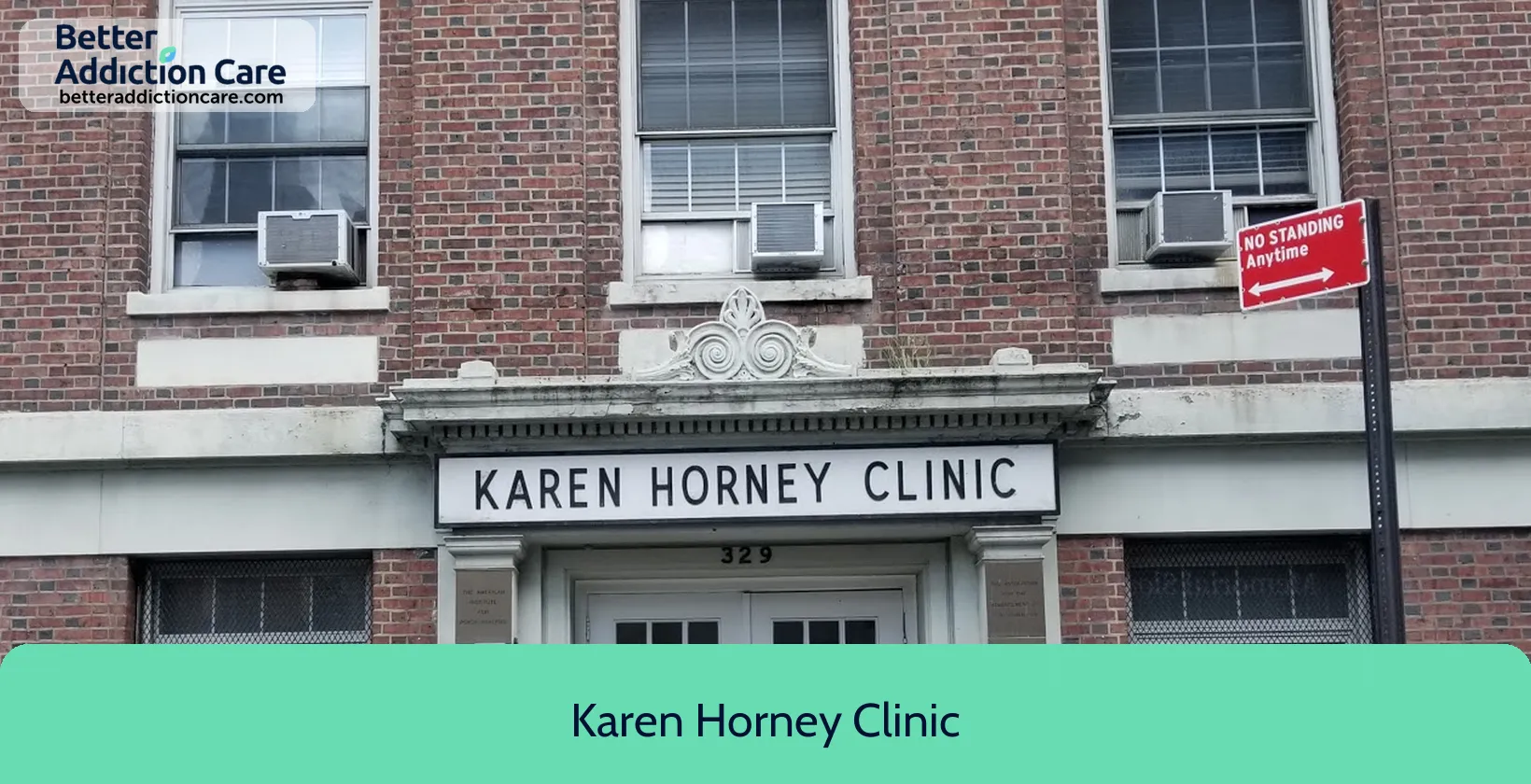Karen Horney Clinic
Overview
Karen Horney Clinic is a mental health treatment center for people seeking treatment near New York County. As part of their treatment modalities for recovery, Karen Horney Clinic provides individual psychotherapy, telemedicine/telehealth therapy, and smoking/vaping/tobacco cessation counseling during treatment. Karen Horney Clinic is located in New York City, New York, accepting cash or self-payment for treatment.
Karen Horney Clinic at a Glance
Payment Options
- Cash or self-payment
- Medicaid
- Medicare
- State-financed health insurance plan other than Medicaid
- Private health insurance
Assessments
- Screening for tobacco use
- Comprehensive mental health assessment
- Comprehensive substance use assessment
Age Groups
- Children/adolescents
- Young adults
- Adults
- Seniors
Ancillary Services
- Suicide prevention services
Highlights About Karen Horney Clinic
6.56/10
With an overall rating of 6.56/10, this facility has following balanced range of services. Alcohol Rehabilitation: 8.00/10, Drug Rehab and Detox: 6.00/10, Insurance and Payments: 6.00/10, Treatment Options: 6.24/10.-
Alcohol Rehabilitation 8.00
-
Treatment Options 6.24
-
Drug Rehab and Detox 6.00
-
Insurance and Payments 6.00
Treatment At Karen Horney Clinic
Treatment Conditions
- Alcoholism
- Mental health treatment
- Substance use treatment
- Co-occurring Disorders
Care Levels
- Outpatient
Treatment Modalities
- Individual psychotherapy
- Telemedicine/telehealth therapy
- Smoking/vaping/tobacco cessation counseling
Contact Information
Read our Most Recent Article About Drug Addiction
DISCLAIMER: The facility name, logo and brand are the property and registered trademarks of Karen Horney Clinic, and are being used for identification and informational purposes only. Use of these names, logos and brands shall not imply endorsement. BetterAddictionCare.com is not affiliated with or sponsored by Karen Horney Clinic.









